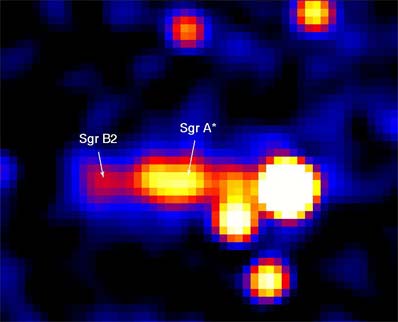Why does a brand new, never-heard-before argument have to be made? Mind you, I didn’t read the information posted in the links, but I hear this all of the time. Why do arguments of the past not suffice for us in the present? Just because you’ve heard an argument before and don’t agree with it doesn’t mean it isn’t valid.
Perhaps you are aware that since the current God-concept was invented by Aquinas and Augustine, human beings have acquired quite a lot of information that was unavailable in their days, using this to develop new ideas.
In the opinions of some folks, some of this information invalidates the God-concept. Many who consider Big Bang cosmology a valid explanation for the origin of the universe find no need for God. Darwinists, similarly, see no more need to believe in a God, for they have what they perceive as a valid explanation for life.
If you expect your grandchildren to share beliefs remotely similar to yours, you’d best defend them. Else they will disappear down the same tube as our rapidly diminishing freedom, and for the same reason. The wolves are at your door.
Do you imagine that your God wants you to step outside and become steak?
If there was concrete proof for belief, there would be no room for faith, and this whole Earth experiment would be of no use. If God wanted us to have concrete evidence of His existence, He would make Himself visible to all plainly, without question. As has been shown time and again in the past, He shows Himself to those who believe, or those He wishes to use, such as Abram, Moses, or Saul.
Is this “whole earth experiment” something you just made up? What is it, exactly?
Lots of human beings claim to see God or His representatives. Witnesses of an objective sort are rare. Do you believe that Joe Smith really received golden tablets from the angel Moroni, on his say so? Perhaps God got tired of dealing with the same old human failings over and over again, and anticipating that they will persist, has simply removed himself from a generally annoying planet, never to appear again, counting on men to pretend in his behalf or not even caring what happens to this forlorn place.
God is not a scientific theorem. You can’t perform an experiment in the search for God. And even if you found God through an experiment, you most likely would not be able to repeat the process and get the same findings. Just as scientists believe that our Milky Way is centered around a black hole, but can’t prove it because there’s no test yet for it, but they go on believing it until something is proven otherwise, so many of us believe in God, because it makes sense with everything that’s happened, throughout history and within our own lives. Until it can be proven otherwise, there is no reason for us to believe any different.
Your ignorance of astronomy is astronomical.
Astronomers theorized the existence of a black hole at the earth’s center after finding many at the centers of other large galaxies. Observations seem to verify (this does not mean prove) their theory.
Since black holes, like God, cannot be seen, their presence is detected inferentially, by observing the velocities of surrounding stars in our galaxy, or via x-ray emissions.
God’s existence is also known inferentially. We observe things which seem to have no better explanation, such as the origin of cells, and infer a Creator. Some infer God from the beauty of flowers. I see his hand in the intricately woven laws of physics, and the mechanisms within living cells.
When you disparage science’s methods, you invalidate the origin of your own beliefs.
The question has been posed before, but I want to ask it again since it hasn’t been addressed. Why do atheists and agnostics seem to care so much that we believe in God? What is the point in you convincing us that one doesn’t exist? Would our lives be better off? Would the lives of others? It’s hard to source violence over religious differences as a reason considering the animosity and bickering towards us from non-theists.
People like to explain things. They want to believe that they know the answers to important questions, and if they don’t have the answers handy, they’ll invent some. Look at yourself— knowing zip about astronomy and science, you foist off your own opinions as if they were God’s own truth.
If you pay enough attention to human culture, both current and historical, you’ll notice a fair correlation between the beliefs held by a group of people and their actions as a culture. Calvinists find salvation through work; other beliefs through faith. Muslims can get salvation and 57 virgins by blowing themselves and some irrelevant bystanders up. Atheists generally don’t do that, you’ll notice. Religious beliefs are important because they control human society. That’s why communists suppress religion.
Atheists are following a belief system. You’ll notice that members of different religions always assume that they are right and others are wrong. I recall being taught that the Catholic Church is the one True Religion. Muslims are taught the same. Whether taught this so specifically or not, all religious people including dogmatic atheists operate under this assumption. Consider— if you did not believe that your belief system was true and correct, wouldn’t you look for something that was?
Finally, your assertions about atheists and agnostics are false. Only dogmatic atheists bother to argue their cause. The majority, many of them scientists, mind their own business and try to avoid religious discussions. True agnostics would not give anyone a hard time over beliefs, holding none themselves.

